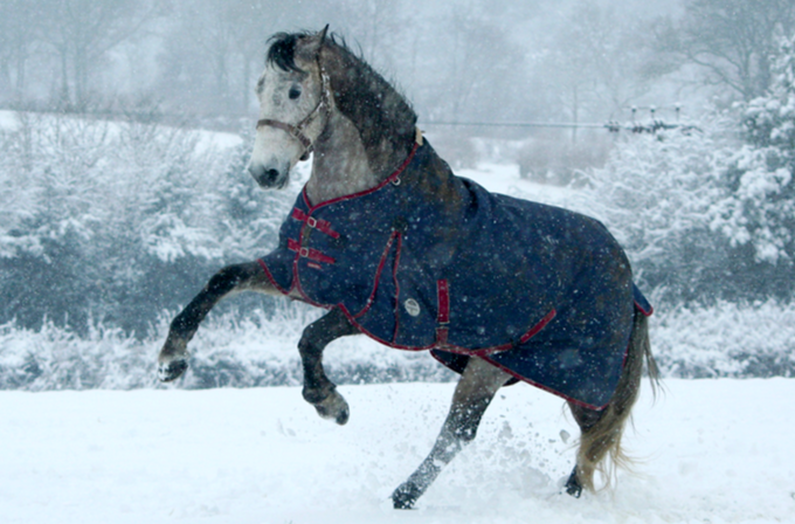Why You Should Blanket Horses In Winter
Blanketing your horse keeps them clean and reduces the amount of hay they need.
A recent study on horse blanketing found that horses who are blanketed in winter require 8% less hay to maintain their body weight. That has a huge impact on your horse-keeping expenses.
Here are some simple guidelines that horse owners might find helpful in determining whether or not their horse needs the protection of a blanket:
HORSE BLANKET FACTS:
- Horses that are clipped or kept in barns under light to discourage winter coat production should be blanketed when temperatures drop below 60º F or when it is windy or rainy.
- Horses with a moderate hair coat can tolerate temperatures as low as 40º F. If they have a heavy coat, they can tolerate temperatures down to about 30º F. Wet conditions change these temperature limits, so keep that in mind when blanketing!
- A horse that has recently moved from a warmer climate might benefit from some external help. Once they've spent the 10-21 days being exposed to the colder weather, they will adapt and need less help, but you might find it beneficial to blanket them until the next winter.
- Older horses that move around less benefit from blanketing in colder weather. Moving generates body heat which is why we often see horses' levels of exuberance rise with cold weather!
- Remove the blanket on a regular basis--check to make sure your horse is not losing body condition, doesn't have blanket rubs or injuries, and is not developing a skin problem such as rain rot under the blanket.
- When the weather is rainy, check to make sure the blanket is waterproof--you will be fighting a losing battle trying to keep a wet horse warm with a wet blanket! Place your hand under the blanket around the neck--your horse should feel dry and toasty warm.
Copyright Denise Cummins, PhD January 2009; updated June 18, 2018; updated June 5, 2024
The Thinking Equestrian
As long as you’re here, check these out!
Equestrian Products That Make Your Riding and Horse Care Easier and Better!
Riding Horses During Winter
Four Reasons to Blanket Your Horse in Winter
Horse Care In Winter
Stay Warm in Winter Like Olympic Athletes Do

